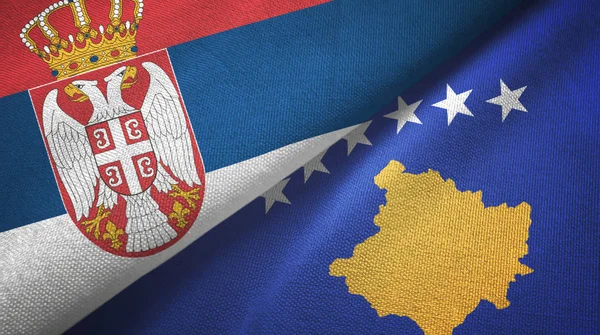Author: Ivan Iliev
At the end of 2022, the relations between Serbia and Kosovo became sharpened again because of the “license plate issue “and the arrest of a former Kosovo Serb policeman by Kosovo police. Even though the relations remain tense and unlikely to change rapidly, we bring you thoughts on what to expect in ties between Kosovo and Serbia in 2023.
In 2023, relations between Kosovo and Serbia will likely continue to be strained, with both sides holding firm to their positions on the status of Kosovo. Serbia has not recognized Kosovo’s declaration of independence in 2008 and continues to consider it a part of its territory. On the other hand, Kosovo has been recognized as an independent state by over 100 countries, including the United States and several European Union member states.
Efforts to resolve the issue through dialogue and negotiation have been ongoing for several years, with the EU playing a pivotal role in mediating talks. In recent years, there have been some signs of progress, such as establishing a joint economic zone and opening a border crossing between the two countries. However, these efforts have yet to result in a resolution to the dispute.
In 2023, it is possible that the EU will continue to exert pressure on both sides to ease the tense relations and that further talks will be held to settle the issue. However, the situation will probably remain unchanged, with both sides holding their positions firmly.
Another possible development in 2023 is the dialogue between Kosovo and Serbia on the normalization of economic relations. In 2020, the EU urged both countries to reach a comprehensive agreement on monetary normalization to improve their relations and pave the way for further integration into the EU. In addition, these economic talks could lead to the signing of trade, energy, and transportation agreements that would benefit both countries and their citizens. However, economic talks could be hindered by sudden tensions that arise between both countries.
The status of Serb-majority areas in Kosovo may also continue to be a source of tension in 2023. These areas have significant autonomy, but the government in Pristina has sought to exert greater control over them. As a result, tensions have risen recently, with violence and clashes between Kosovo’s security forces and local Serb residents. In 2023, these tensions may continue, with the probability of further violence and instability in the region. On the other hand, if the EU continues to push for a resolution, there is a chance that Serbia and Kosovo will reach an agreement on the status of these areas, which would be an essential step towards normalizing relations between the two countries.
Another essential factor that could influence the development of relations between Kosovo and Serbia in 2023 is the role of Russia. Russia has long been a supporter of Serbia and has opposed Kosovo’s independence. In recent years, Russia has increased its influence in the Balkans, and there are concerns that it could use this influence to complicate relations between Kosovo and Serbia further. However, suppose the EU continues to exert pressure on both sides to resolve, and the war in Ukraine would continue. In that case, Russia’s influence will be limited, and Moscow’s ambitions will not heavily shape relations between Kosovo and Serbia.
In 2023, it is also possible that the issue of war crimes and human rights violations committed during the Kosovo war in the late 1990s will continue to be a source of tension between the two countries. Serbia has been accused of committing war crimes during the conflict. The International Criminal Tribunal for the former Yugoslavia (ICTY) has convicted several high-ranking Serbian officials for their role in the war. However, some have criticized the ICTY for not holding most Kosovo Albanians accountable for their crimes during the war. In 2023, the issue of war crimes may continue to be a source of tension between the two countries, with Serbia pushing for greater accountability for crimes committed by Kosovo Albanians.
Another possible development in 2023 is the increased involvement of the United States in the region. The US has been a strong supporter of Kosovo’s independence and has played an essential role in mediating talks between the two countries. In 2023, the US may continue to play a vital role in resolving the dispute and improving relations between Kosovo and Serbia.
Furthermore, the issue of the return of refugees and internally displaced persons (IDPs) may also continue to be a source of tension in 2023. Hundreds of thousands of people during the Kosovo war were displaced, and many have yet to return to their homes. In 2023, efforts to facilitate the return of refugees and IDPs may continue, but progress is likely to be slow and hampered by a lack of cooperation from both sides.
In addition, the political situation in Serbia and Kosovo could also play a role in developing relations between the two countries in 2023. In 2023, Serbia will be led by a different government, and Kosovo might see some changes in the division of political power. Moreover, the new Serbian government may have other priorities and approaches toward the issue of Kosovo, which could impact the relationship between the two countries.
In summary, the development of relations between Kosovo and Serbia in 2023 will continue to be shaped by a complex set of factors, including ongoing efforts to resolve the dispute through dialogue and negotiation, the normalization of economic relations, the status of Serb-majority areas in Kosovo, the issue of war crimes, the return of refugees and IDPs, and the political situation in both countries. Tensions are likely to remain high, and there is a limited possibility that progress will be made toward resolving the dispute and improving relations between the two countries.

